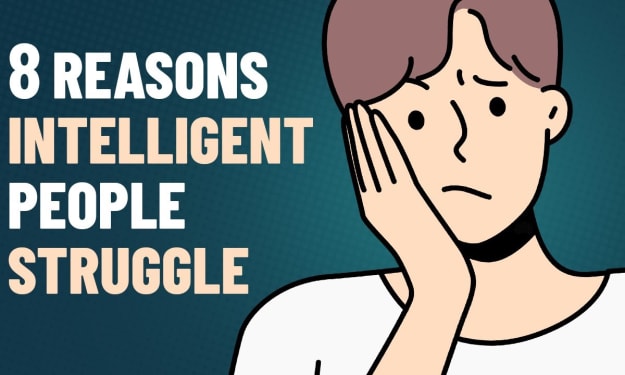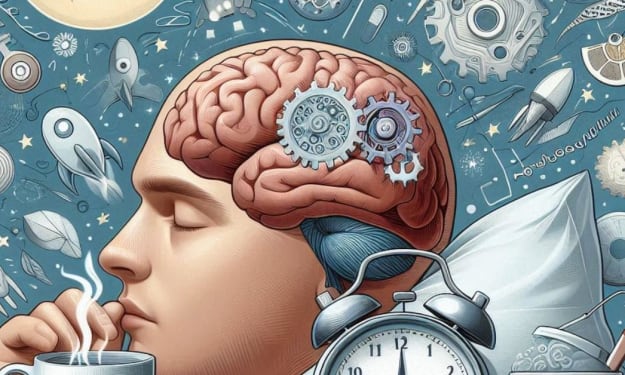11 Struggles Only Authentic Empaths Will Understand
Struggles Only Genuine Empaths Will Understand: Empaths are people who not only sense—but take on—others' emotions; they are most often described as caring, compassionate, understanding, and, as you might expect, empathetic

Struggles Only Genuine Empaths Will Understand: Empaths are people who not only sense—but take on—others' emotions; they are most often described as caring, compassionate, understanding, and, as you might expect, empathetic. As a result, friends and family members often come to them first when they feel the need to be heard or comforted. Empaths are gifted with the power to easily understand other perspectives because they genuinely feel other people's emotions as their own. While most people struggle to put themselves in another's shoes, empaths easily fit into any pair. However, this heightened emotional sensitivity is a unique ability that can also be a burden. An empath's deep feelings are not always shared by others, and that can leave them feeling misunderstood or alone. Overwhelm is also common since they are juggling other people's emotions on top of their own.
Here are some specific struggles that you'll only fully understand if you're a genuine empath:
Number 1: Others' Emotions Can Flip Yours Like a Switch: Have you ever had a day that was going great until it wasn't—because it was ruined by someone else's bad day? If you're an empath, your own emotions immediately shift toward whatever they're feeling—disappointment, anger, grief, worry, or whatever. It's like you lived through their day and not your own. This can make it difficult to hold space for that person as you attempt to cope with the same challenging emotions.
Number 2: Emotional Fatigue is Constant: Coping with your own emotions can be exhausting, and if you're an empath, your emotional energy drains even further as you sense emotions around you. It can become too much, too easily. Empaths tend to always feel emotionally exhausted, and to refill their energy, they require more self-care than the average person.
Number 3: Compassion Becomes a Burden: It's common for empaths to feel like (or be told) that they care too much or that they're too sensitive or emotional. But to the empath, it's strange to see other people who don't care as much. Empaths can't turn off their emotional abilities; they always feel compassion for the people around them, and it can feel like a burden. They often lack control over the heavy emotions they carry, and when you feel pain more than anyone else around, it's hard not to feel responsible for alleviating it.
Number 4: You Know When People Are Lying: When an empath is lied to, they know. And while this may seem like a good thing, knowing when someone is lying can make you feel vulnerable and lonely. Even the smallest white lies can be extremely painful for an empath, who is hypersensitive to begin with.
Number 5: You're Torn Between Social and Alone Time: Even though empaths connect with others easily, they require a significant amount of alone time to take a break from absorbing the emotions of others and to process their own. If you're an empath and don't get the alone time you need, the building pressure could make you crack. However, isolation can have a negative impact on your mental health, so you'll need to find a balance between maintaining your relationships and spending time alone.
Number 6: You Often Feel Anxious or Depressed: Although being an empath is not synonymous with poor mental health, it is common for empaths to struggle with anxiety and depression. A heightened sensitivity to emotions, including their own, makes empaths prone to self-doubt, pessimism, and worry. If others approach them with anger or disappointment, the empath will be significantly affected by that negativity. This means that you can feel both mental and physical symptoms that come with other people's emotions, including depression, panic attacks, chronic fatigue, or worse.
Number 7: People Often Take Advantage of You: Part of an empath's "superpowers" is intuition. They tend to have accurate gut reactions to others, and this helps shield them and their loved ones from those who are dishonest and ill-intentioned. With that said, an empath's intuition can't protect them from everything. They can still fall prey to deception, narcissism, and toxicity, so be mindful of people who try to take advantage of your compassionate, empathetic, and kind nature.
Number 8: Small Things Can Deeply Upset You: It's an understatement to say that empaths care. Their nature dictates that they feel lots of emotions—about everything. A mean comment on an online post, a disagreement at work, a violent movie scene—all these little things can affect an empath for days, and it can take a while to get over them. Other people don't always understand that an empath isn't going to just "get over it."
Number 9: Sometimes You Forget to Save Emotional Space for Yourself: Your empathy allows you to be an active listener, a healer, a problem solver, and more for the people in your life. So much so that you sometimes give away all your energy to others and forget to leave some for yourself. This is why it's so crucial as an empath to prioritize self-care and inner work above all else. You need to help yourself first if you want to have enough energy to help others.
Number 10: You Struggle To Say No: If you're an empath, you probably have the tendency to want to make other people happy—even at your own expense. For most empaths, saying "no" is a real challenge. Their naturally caring personalities often make them feel like it's their job to take care of other people's needs, and saying "no" can feel like a personal failure. However, once their energy drains, a sense of overwhelm may lead them to regret saying "yes."
Number 11: It's Hard to Tell Your Emotions Apart from Others': This phenomenon is the most significant struggle that empaths face. If you're constantly receiving emotional data from the people around you, knowing the difference between your emotions and theirs can be tricky. You might even begin to think or believe their thoughts and perceive them as your own. The consequence is that you might make misguided decisions based on feelings or thoughts that are not your own.
If you identify as an empath, what challenges resonate with you? Is there anything you would add to the list? Share your thoughts in the comments below.
About the Creator
Enjoyed the story? Support the Creator.
Subscribe for free to receive all their stories in your feed. You could also pledge your support or give them a one-off tip, letting them know you appreciate their work.






Comments
There are no comments for this story
Be the first to respond and start the conversation.